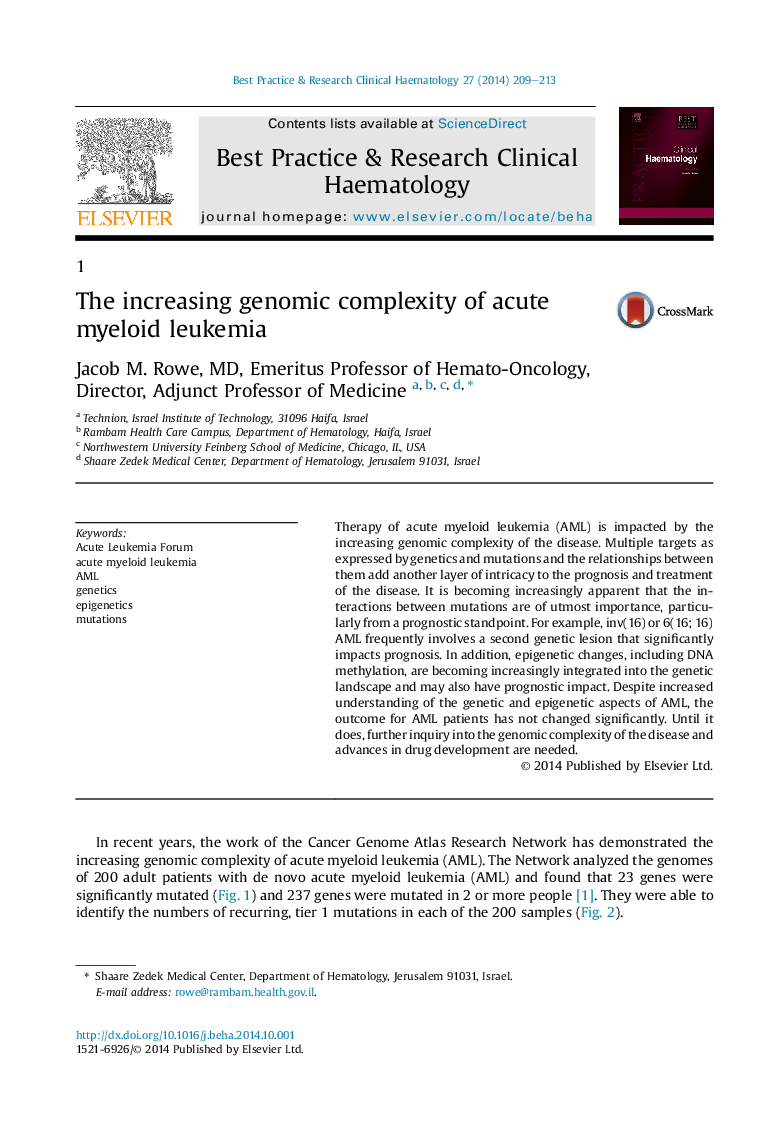| Article ID | Journal | Published Year | Pages | File Type |
|---|---|---|---|---|
| 2100138 | Best Practice & Research Clinical Haematology | 2014 | 5 Pages |
Therapy of acute myeloid leukemia (AML) is impacted by the increasing genomic complexity of the disease. Multiple targets as expressed by genetics and mutations and the relationships between them add another layer of intricacy to the prognosis and treatment of the disease. It is becoming increasingly apparent that the interactions between mutations are of utmost importance, particularly from a prognostic standpoint. For example, inv(16) or 6(16; 16) AML frequently involves a second genetic lesion that significantly impacts prognosis. In addition, epigenetic changes, including DNA methylation, are becoming increasingly integrated into the genetic landscape and may also have prognostic impact. Despite increased understanding of the genetic and epigenetic aspects of AML, the outcome for AML patients has not changed significantly. Until it does, further inquiry into the genomic complexity of the disease and advances in drug development are needed.
